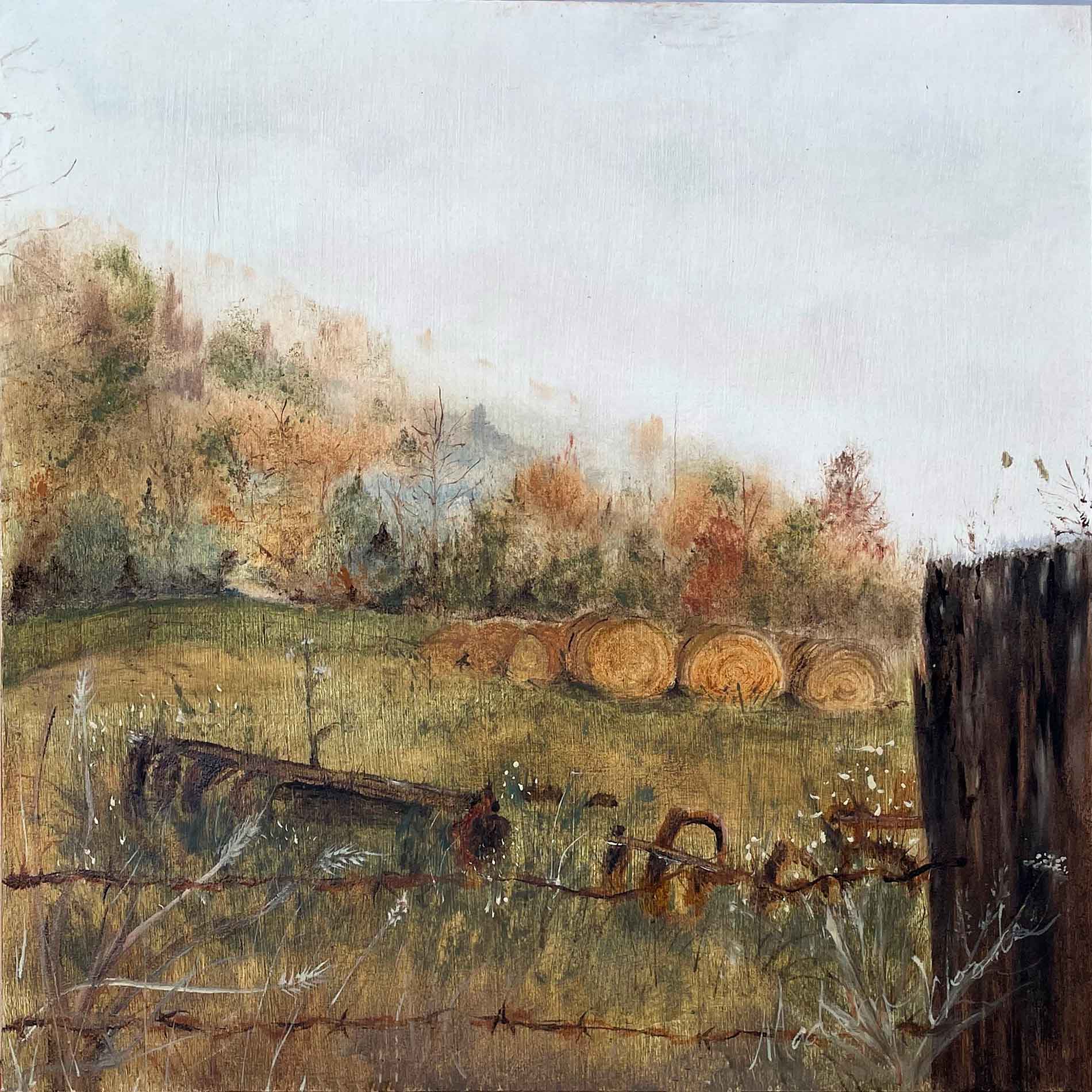I managed to get this painting’s final touches put on Saturday while at the art market, before the wind became problematic. It’s a landscape on a 10 x 10″ cradle board of an Ozark autumn morning with mist on the mountains across the way.
You can see all of the progress on it from start to finish at my earlier post:
Autumn in the Ozarks
The colors of fall work well for my earthy pigments. And it’s also my favorite season. So, it’s not surprising that this is one of my favorite landscape paintings. It was also one of my favorite photographs that I worked from as a reference. While birds of prey remain my absolute favorite subject, I think that landscapes might be making a move for that position.
A Little About My Paint-making Process
Since my paints are handmade and (mostly) locally foraged, I have to make sure I have the colors I need before I begin a project. If it’s a plant pigment, then I’ll need to harvest the plant and process it to make the pigment. The only plant sources I use at this time are thyme, and the root bark of Osage trees. The rest comes from foraged rocks, soot, bone, or purchased lapis and titanium dioxide powder.
Here’s a blog post I made earlier about making oil paints:
So, if it’s a rock, then I’ll break it to smaller pieces, then crush it as finely as I can. The crushed rock is the raw pigment. After that I put the powder into a jar and fill the jar with water. Depending on the source rock, I’ll either pour off the colored water into another jar to let it settle, or pour the rinse water out and keep the sediment for the paint. After the water clarifies and the pigment has settled, then I pour off the clear water and let the sediment dry. That is what I’ll make the paint from.
When it comes to plants, there’s more chemistry involved. I’ll make what is called a ‘lake’ pigment. Here’s a post that gives more information on that process.
I hope you love this earthy palette of color as much as I do! Thanks for reading ~ Madison

